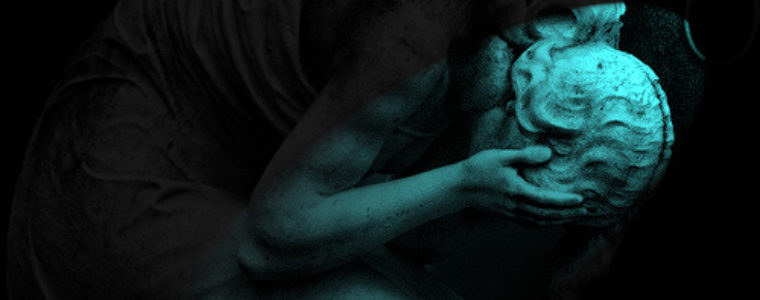Letting Weeping Spend the Night
It was the twenty-third of May, and I found myself face to face with a small, sticky-sweet-looking red velvet cake. I may have considered the purchase for a few moments; cake isn’t healthy after all. In the end, though, I brought it home, and we had it for dessert. My husband asked me what the family had done to earn cake on a seemingly random day. My only response, “Dad’s birthday.”
My father died suddenly when I was twenty-six. For a long time, I just wouldn’t talk about it. I hated the awkward moment when someone said “I’m sorry for your loss,” and I didn’t have an answer. I never did. It all seemed so canned. Even now, when people learn that my father died before two of my children were born, they feel the need to offer consolations that are as easily forgotten as spoken. Even now, I still don’t know quite how to receive them, except to simply say “thank you,” as one would receive an awkward compliment or an unexpected gift.
My father must have been gone ten years when I brought home that unexpected dessert. Red velvet was his favorite cake, and, growing up, there was always one on the table on the twenty-third of May. I wanted my children to have a touch-point for that memory, and I wanted to celebrate my father, even though I wasn’t of a mind to talk about missing him.
It was not until a couple of years ago, when one of my closest friends was dying, that I really learned how to talk about my father’s death. During Beth’s year-and-a-half struggle with cancer, her teenage daughter would ask me frenzied questions about what it was like to lose a parent. We talked about the awkward grieving rituals. I admitted to the guilt we all take on but don’t deserve as we ask ourselves if we were grieving properly, or if we had unfinished business somewhere along the way. We talked about regrets and missed opportunities. We talked about the differences in our situations, too. My father died quickly; her mother rallied, lingered, and suffered. I was twenty-six; she was sixteen. This was not exactly something I was good at, but opening up my experience was a gift to my friend’s daughter. It turned out it was also a gift to me.
Loss and all the emotions that attend it don’t exactly go away. Instead, they become integrated more into who we are and how we express our love for someone who has passed away. Over the years, grieving slowly becomes part of the fabric of our lives, but at some point it turns itself inside out and becomes rejoicing. I wouldn’t miss my father if I hadn’t had a father worth missing. That cake was the beginning of a process of learning to celebrate his life all over again.
I watch now as others—my friend’s daughter and other dear ones who have lost a parent or spouse or someone close to them—begin that process themselves. Their grief is still fresh, with its vivid and painful side turned outward, and I watch as reassurances about grieving are again offered up as shields behind which all parties can hide. There is truth in these, of course: My friend Beth is not suffering anymore, and “we don’t grieve as those who have no hope” (1 Thess. 4:13, paraphrased). Cancer didn’t win, and she is with Jesus now.
Still, truth spoken repeatedly into our wounds seems to become cliché—well-intentioned words that grief repels as easily as they come its way. They are words given to soothe the helplessness of the one who offers them, but are useless against the power of loss itself.
In the Psalms, we read that “weeping may spend the night, but joy comes in the morning” (Ps. 30:5b). We want, instinctively, to rush straight to the joy. Of course the Psalm’s ancient use was for those who had found themselves in the morning no longer walking through the valley of the shadow of death. At the same time, for those who do grieve, it is the night of weeping that demands to be acknowledged. There is no rushing the night of weeping, it will progress forward in its own way.
Until that grief turns itself inside out, becoming a grief-shaped joy that no one else can understand, the clichés and kind words have nowhere safe to land. Nonetheless, there is a remarkable aspect to grief. The loss comes from a profound experience of what is beautiful in this life. No one mourns an enemy. No one grieves the end of suffering. Grief is, in fact, the last sacred gift we offer to the ones we are thankful to have known and loved. It is in this sacred mystery that grief turns itself inside out, that joy comes even in the dark hours before the dawn.
The Psalmist himself goes on and proclaims, “You have turned, for me, my mourning into dancing” (Ps. 30:11a). Sackcloth and ashes become garments of joy and gladness. Weeping is not cast off but transformed. Suddenly, while it still seems to be dark, the things that our beloved loved, which once triggered our sense of loss, begin again to resound with echoes of joy.












Simply beautiful and true. Every word.